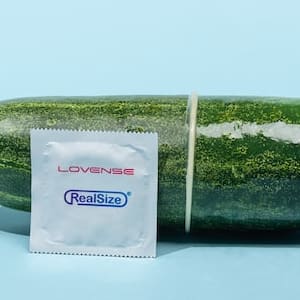guilty pleasure: Idiom Meaning and Origin
What does ‘guilty pleasure’ mean?
The idiom "guilty pleasure" refers to something that provides enjoyment or satisfaction, but is considered shameful or embarrassing due to societal judgment or personal feelings of guilt.

Idiom Explorer
The idiom 'humble pie' means a person's acknowledgment of their mistake or humiliation, often with a sense of humility and remorse.
The idiom "have a good time" means to enjoy oneself or to have an enjoyable experience.
The idiom "guilt trip" refers to a situation where someone intentionally manipulates another person into feeling guilty or remorseful in order to control their actions or behaviors.
The idiom "good job" is used to express approval or praise for someone's work or accomplishment.
The idiom "go down the wrong way" means to do or say something that is inappropriate, offensive or causes discomfort to others.
The idiom "glutton for punishment" refers to a person who willingly and repeatedly subjects themselves to difficult or unpleasant situations, suggesting a lack of self-preservation or a masochistic tendency.
The idiom "get away with murder" means to escape punishment or consequences for one's actions, often referring to getting away with something serious or outrageous.
The idiom "get away with" means to do something wrong or illegal without being caught or punished.
The idiom "gagging for it" means to have a strong desire or craving for something, often of a sexual nature.
The idiom *fun and games* means that a situation is enjoyable and entertaining, but it can also imply that there are hidden difficulties or challenges involved.
Unmasking the Enigma
The idiom “guilty pleasure” has a straightforward and commonly understood meaning in modern English. It combines guilt and pleasure, describing an activity or indulgence one enjoys despite feeling a sense of wrongdoing or shame. This phrase has gained popularity in mainstream English-speaking cultures, particularly in the United States.
The origin of the idiom isn't easily traceable to a specific event or source. Like many idioms, its origins can be attributed to a combination of linguistic evolution and cultural influences. However, it likely emerged as a way to express the conflicting emotions that arise when enjoying something that is deemed socially unacceptable or culturally frowned upon.
The term can refer to a broad range of activities, such as binge-watching reality TV shows, listening to cheesy pop music, or indulging in a guilty snack. These activities are often considered lowbrow or lacking in cultural value, but people find pleasure in them despite their self-perceived guilt. The idiom is used to acknowledge and express the pleasure experienced while simultaneously acknowledging the social judgment or shame associated with it.
It's important to note that the term is subjective and varies from person to person. What one person considers a guilty pleasure may be completely different from what another person considers the same. This subjectivity adds to the complexity and fluidity of the phrase, making it adaptable to individual preferences and cultural contexts.
The idiom reflects a fundamental tension within human nature. It encapsulates the universal longing for pleasure and enjoyment while acknowledging the internal conflict and societal expectations that can accompany these indulgences. By acknowledging the guilt associated with certain pleasures, individuals can navigate and make sense of their own desires, allowing them to fully embrace their unique interests and preferences.
The idiom also encompasses the contradictory emotions felt when indulging in activities that are considered socially unacceptable or culturally frowned upon. It allows individuals to acknowledge and embrace their unique interests. As society continues to evolve, so too will the definition and understanding of “guilty pleasure,” providing endless possibilities for discussions and explorations of this intriguing idiom.
Now let's explore how the idiom "guilty pleasure" is related to other idioms:
The phrase "crying shame" is often used to express strong disappointment or disapproval. When someone says "It's a crying shame," they are emphasizing the negative connotations associated with a particular situation. Guilty pleasures can sometimes be viewed as a crying shame because they are often judged or criticized by others. However, despite the disapproval or disappointment, individuals still find pleasure in these activities.
The idiom "glutton for punishment" refers to someone who consistently engages in activities that are difficult, painful, or unpleasant. This idiom can be related to guilty pleasures because individuals who indulge in activities considered socially unacceptable or culturally frowned upon may face criticism or punishment. However, they continue to engage in these activities because they find pleasure in them, despite the potential consequences.
The phrase "get away with" means to avoid punishment or negative consequences for an action. Guilty pleasures can be seen as getting away with something because individuals are enjoying activities that are often socially judged or deemed unacceptable. They are able to indulge in these pleasures without facing significant repercussions or negative judgment, allowing them to experience pleasure without feeling completely guilty.
Example usage
Examples of how the idiom "guilty pleasure" can be used in a sentence:
- I know it's cheesy, but watching reality TV is my guilty pleasure.
- She loves eating junk food, but feels guilty afterward, considering it her guilty pleasure.
- Reading trashy romance novels is my guilty pleasure that I indulge in when I need a break from serious literature.
More "Emotion" idioms



